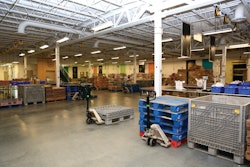Earlier this week it was announced that the Department of Science and Technology and the National Research Foundation have combined their efforts to launch the Centre of Excellence in Food Security at the University of the Western Cape (UWC), the first center of excellence to be hosted by a historically black university. The Center aims to be a platform for researchers to investigate ways to increase food production and improve food security in South Africa, where a quarter of the population still experiences hunger.
The center, which will be co-hosted by UWC and the University of Pretoria, will conduct research on food creation, distribution, consumption and governance. It will start by looking at how food systems are changing and how this affects sustainability. After this it will look into policies and technological interventions that can increase access to affordable and nutritious food.
One focus area will be to look at waste during production and delivery.
The center leaders said they hoped their findings would reduce waste and increase food production in order to deal with high food prices, especially for rural communities.
“I’ve heard of a figure around 20 percent of food wasted in the processing stage in South Africa,” said Professor Julian May, the director of the Institute for Social Development at UWC. “The world produces around 4,500 calories [of food] per person [per day], so that’s more than enough to feed everybody. But we waste 1,900 calories,” he said.
Science and Technology Minister Derek Hanekom, said Kenya had completed a study showing that just by reducing wastage it could become a food secure nation.
Hanekom said South Africa did not have a national food security problem: the big challenge was household food insecurity.
“Where there is the greatest poverty, people pay most for their food.”
Most of the organizations involved with the new research center, most of which are universities, have done research on inefficiencies and wastage, the effect of food price inflation on the poor, expansion of supermarkets to rural areas and food preservation.
To read more, click HERE.



















